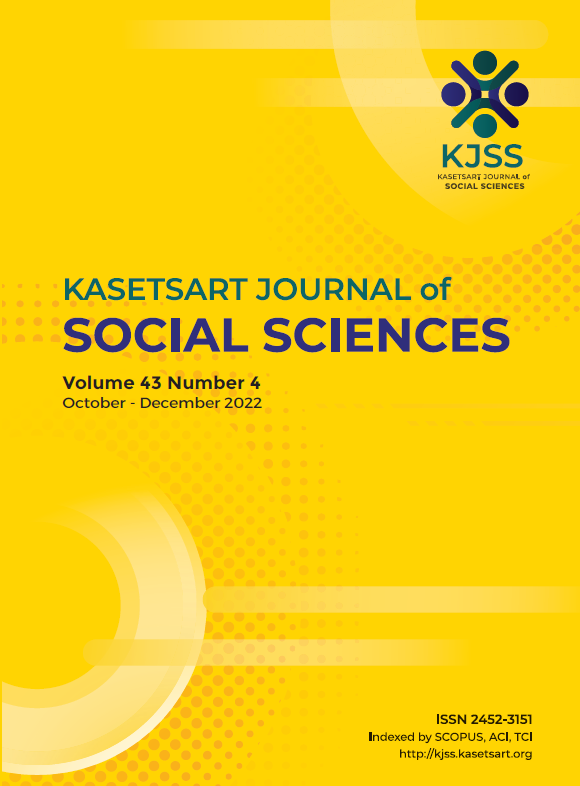A development of a blended learning enhancement course based on grammar-translation and communicative language learning approaches to enhance pre-service teachers’ English language competencies for university students in preparation for public service entrance examination in Thailand
Keywords:
blended learning enhancement course, communicative approach, English language competencies, grammar-translation approach, pre-service teachersAbstract
The purposes of this study were to: study pre-service teachers’ English language problems and needs, develop and assess the quality of a blended learning course based on grammar-translation and communicative approaches to enhance pre-service teachers’ English language competencies, implement and compare preservice teachers’ English language competencies and study pre-service teachers’ satisfaction and perception towards the blended learning enhancement course. A paired-group pre-test/post-test design was applied in this study. The samples consisted of 73 students (sec. 1 = 35, Sec. 2 = 38) from the department of education, selected through clustered random sampling techniques from the faculty of Education, Naresuan University. Blended learning course, semi-structured interview, evaluation forms, course handbook, English competency assessment test, satisfaction assessment questionnaire and perception semistructured interview all constituted the research instruments. Paired t-test was used for comparing students’ language competencies while content analysis was used in analyzing data from semi-structured interviews. The findings revealed that: (1) Pre-service teachers lack knowledge and understanding of grammatical structures/vocabulary, lack knowledge and understanding of communicative interactions and the inability to read and write using correct language structures, hence, the need to solve the problems; (2) A blended learning enhancement course was developed consisting of 6 components: principle, objective, learning content, learning activities, instructional media and assessment. The blended learning enhancement course was at the highest level of appropriateness (x̅ = 4.83, SD = 0.17) and feasible for implementation; and (3) Pre-service teachers’ English language competencies after course implementation were enhanced and significantly higher than before for both samples (x̅ = 41.80– x̅ = 80.63 with D = 38.83, t = 29.14 for sec.1 and x̅ = 38.71– x̅ = 80.39 with D = 41.68, t = 33.85 for sec. 2). (4) Pre-service teachers’ satisfaction towards the blended learning course was at the highest level (x̅ = 4.95, SD = 0.19) with positive perceptions and expressions of enhancement in the English language competencies.
Downloads
Published
How to Cite
Issue
Section
License

This work is licensed under a Creative Commons Attribution-NonCommercial-NoDerivatives 4.0 International License.
This is an open access article under the CC BY-NC-ND license http://creativecommons.org/licenses/by-nc-nd/4.0/










